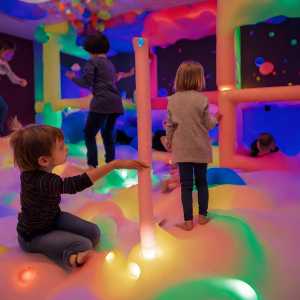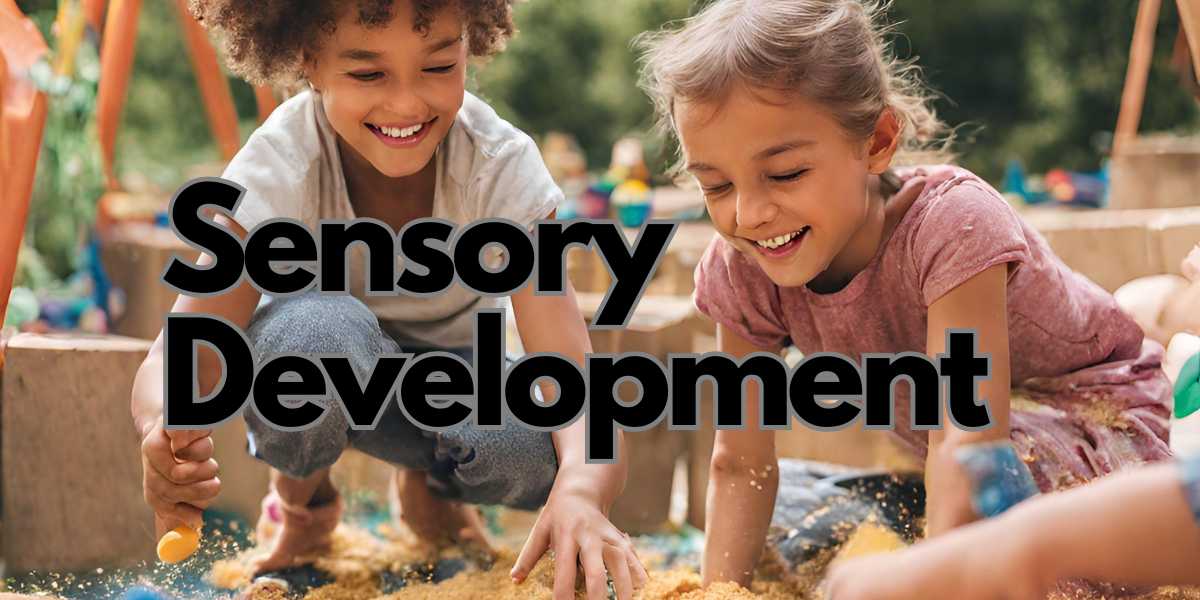Sensory play is a vital component of early childhood development, offering numerous benefits to children’s physical, emotional, and cognitive growth. Here are some of the key advantages of sensory play:



Fine Motor Skills Development: Sensory play often involves activities that require children to manipulate materials using their hands and fingers. Activities like pouring, scooping, pinching, and moulding help strengthen and refine fine motor skills. These actions promote hand-eye coordination, finger dexterity, and control, which are essential for tasks like writing, drawing, and buttoning clothes.
Sensory Stimulation: Engaging with various textures, temperatures, and materials in sensory play stimulates the senses, including touch, sight, smell, taste, and hearing. This exposure enhances a child’s sensory perception, leading to a greater awareness of their environment. This heightened sensory awareness can help children become more attuned to their surroundings and develop a deeper appreciation for the world around them.
Cognitive Development: Sensory play fosters cognitive growth through problem-solving, experimentation, and exploration. Children learn cause-and-effect relationships, practice critical thinking, and develop their creativity. They are encouraged to make predictions, observe outcomes, and adjust their actions accordingly. This process of exploration and discovery is fundamental to cognitive development.
Language Development: Sensory play can also promote language development. When children engage in sensory activities, they often discuss their experiences with caregivers or peers. This communication helps expand their vocabulary and encourages them to describe their sensory experiences, fostering their ability to express thoughts and feelings.
Emotional Regulation: Sensory play can be calming and stress-reducing. Activities like playing with play-dough, kinetic sand, or water can provide a sense of comfort and security, helping children manage their emotions. Sensory play can be a therapeutic outlet for stress and anxiety, allowing children to self-regulate and process their feelings in a safe and enjoyable manner.
Social Skills: Sensory play can be a social experience, particularly in group settings. It encourages sharing, cooperation, and turn-taking, promoting social interaction and teamwork. Children can learn to negotiate and communicate with peers, fostering the development of essential social skills.
Independence and Confidence: Sensory play often allows children to explore and create on their own terms. This sense of autonomy and control over their activities boosts their self-esteem and confidence. They gain a sense of accomplishment by independently completing tasks and achieving goals in sensory play.
Sensory Integration: Sensory play helps children integrate sensory information effectively. This is particularly important for children with sensory processing challenges, as it can help them become more comfortable with various sensory stimuli and better regulate their responses to sensory input.
In conclusion, sensory play is a multifaceted learning experience that contributes significantly to children’s overall development. It provides opportunities for fine motor skill development, enhances sensory awareness, stimulates cognitive growth, and supports emotional regulation. By engaging in sensory play, children not only have fun but also lay the foundation for various skills that will benefit them in their academic and personal lives.





